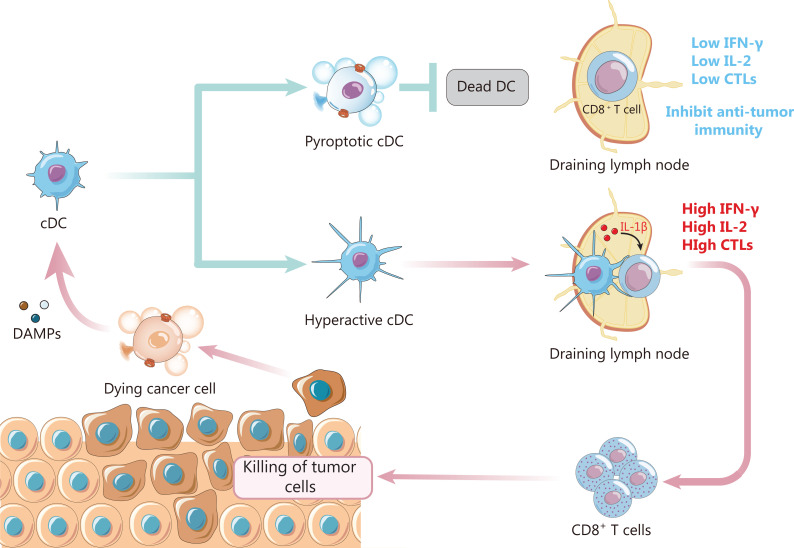Figure 4.
APCs amplify inflammatory signals during pyroptosis. Pyroptotic cancer cells may provide signals including tumor antigens, DAMPs, and pro-inflammatory cytokines, which activate naïve T cells. This process relies on APCs. Interestingly, inflammasome activation in DCs may lead to DC pyroptosis or a "hyperactive" state. Pyroptotic DCs lead to the disruption of T cell activation signals, thus hindering an anti-tumor immune response, but DCs in the "hyperactive" state have a stronger ability to migrate to draining lymph nodes, and can continue to release pro-inflammatory cytokines and activate T cells more effectively. The process amplifies inflammatory signals during cancer cell pyroptosis, thus triggering a strong anti-tumor immune response.

